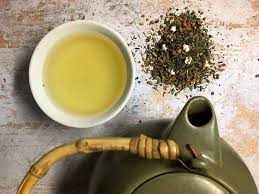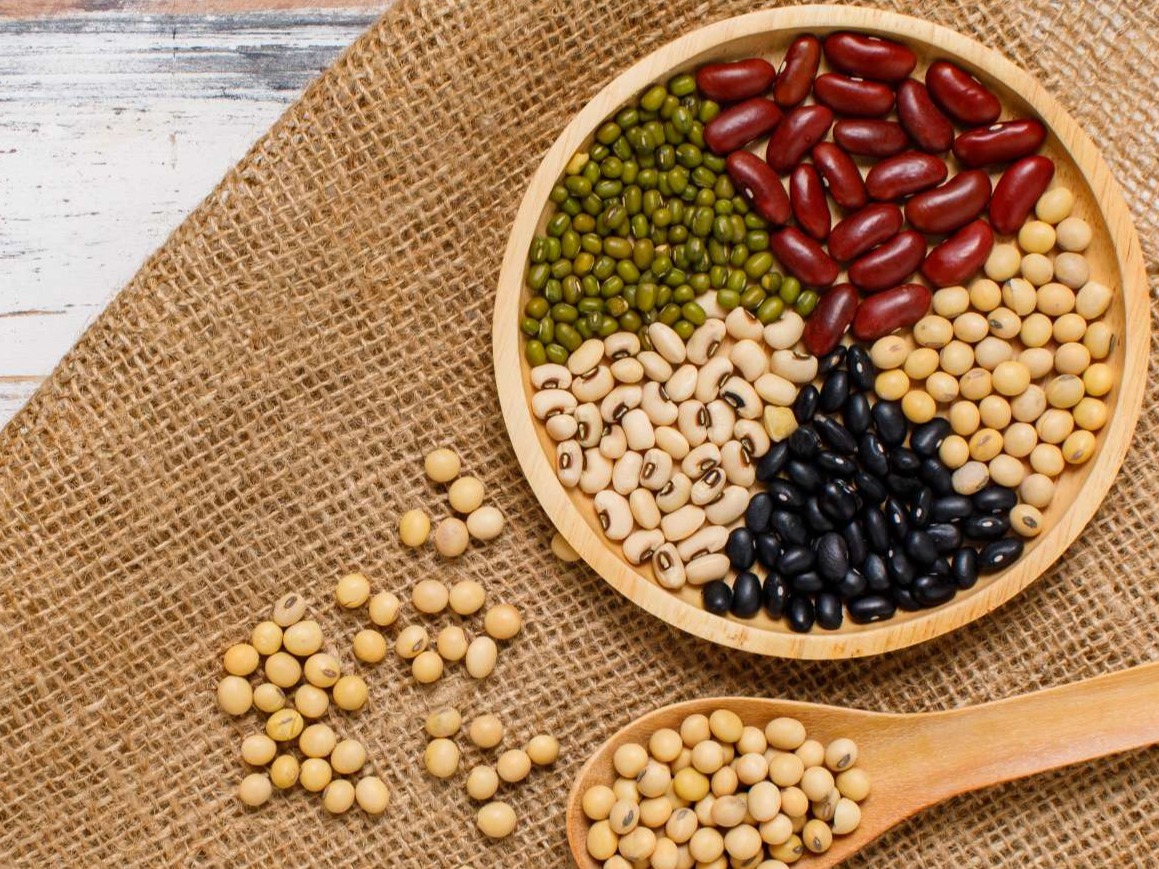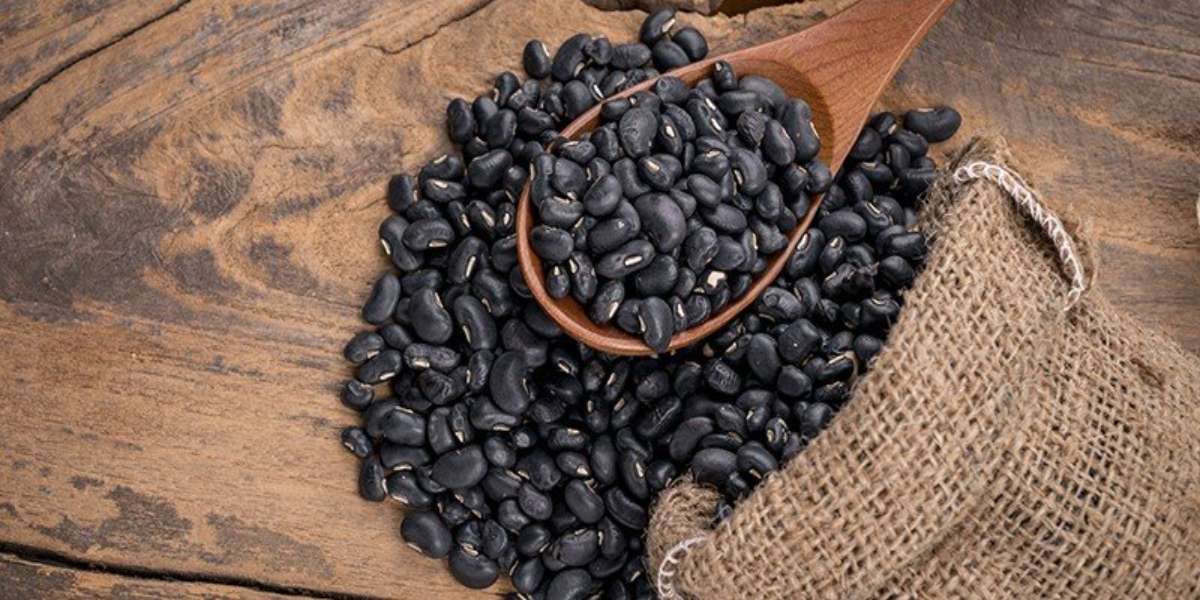Roasted black beans tea
Roasted black beans tea
Black bean tea is made from roasted black beans. It is caffeine-free and an excellent source of anthocyanins, which have antioxidant properties.
Black beans contain several other key nutrients that benefit human health, like plant-based protein, dietary fiber, and antioxidants. Besides that, they also contain antinutrients that can make them hard to digest, to balance it, you should soak or boil them before consumption.
Inheriting nutritional compounds from black beans. Black bean tea is a refreshing drink that is rich in anthocyanins and other nutrients. Anthocyanins have strong antioxidant effects and help prevent aging. Anthocyanins in black beans are easily soluble in water and heat-resistant, so drinking roasted black bean tea is one of many ways to absorb nutrients that are beneficial to health.
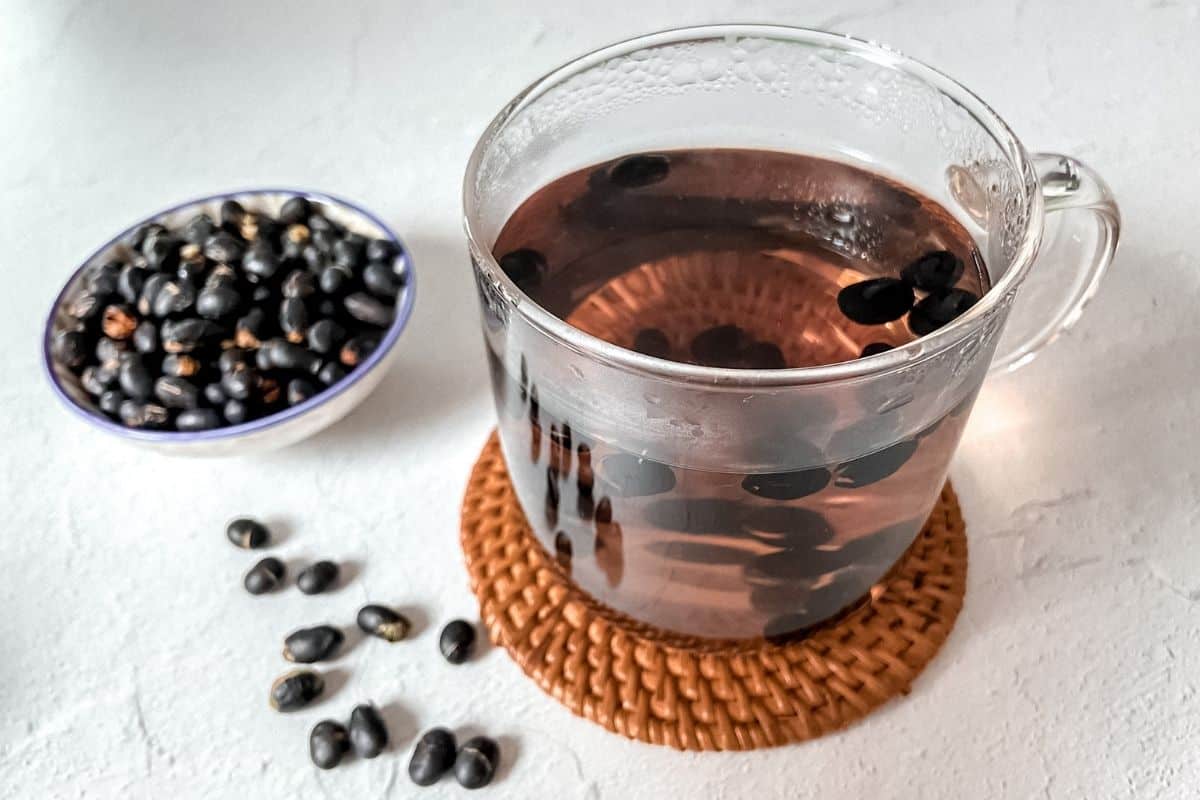
PLANT NUTRITION
One cup (172 grams) of boiled or roasted:
- Calories: 227
- Protein: 15 grams
- Fat: 1 gram
- Carbs: 41 grams
- Fiber: 15 grams
- Folate: 64% of the daily value (DV)
- Copper: 40% of the DV
- Thiamine: 35% of the DV
- Manganese: 33% of the DV
- Magnesium: 29% of the DV
- Iron: 20% of the DV
- Phosphorus: 19% of the DV
- Potassium: 13% of the DV
- Vitamin B6: 7% of the DV
- Calcium: 2% of the DV
- Selenium: 2% of the DV
Rich in Antioxidants:
Black beans are a good source of antioxidants, including flavonoids and anthocyanins, which help protect cells from damage caused by free radicals. These antioxidants may contribute to reducing the risk of chronic diseases.
High in Fiber:
Black beans are packed with fiber, which can promote digestive health, prevent constipation, and help regulate blood sugar levels. The fiber in the tea may be less concentrated than in the whole beans, but it still contributes.
Black beans are rich in plant-based protein, fiber, and numerous vitamins and minerals. However, their mineral content may vary, and your body may not absorb their iron well due to the presence of antinutrients.
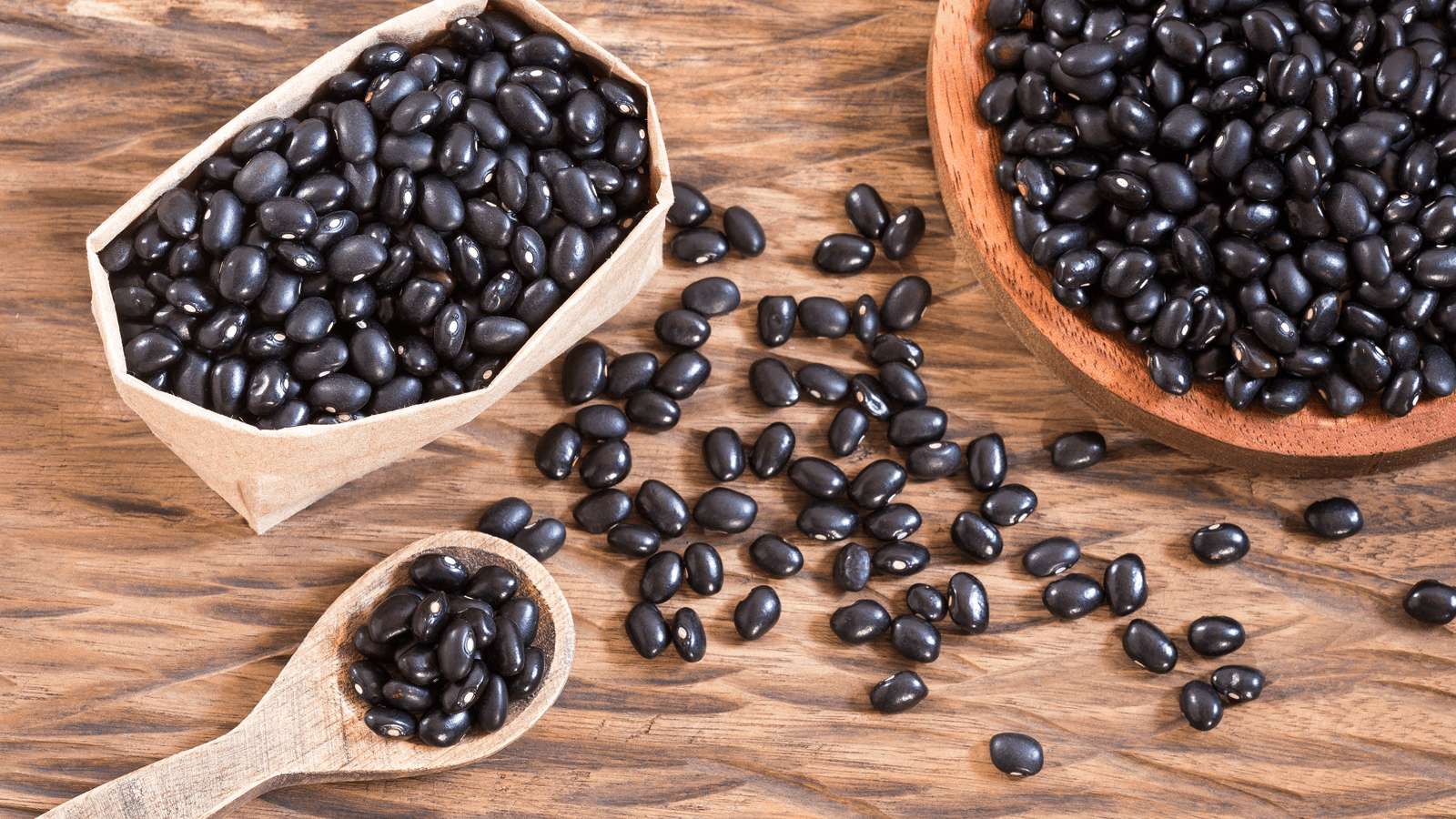
POTENTIAL HEALTH BENEFITS
1. Support Heart Health:
The fiber, potassium, and antioxidants in black beans may contribute to heart health by lowering cholesterol levels, reducing blood pressure, and improving blood vessel function. Some of these benefits may transfer to the tea, though again, likely to a lesser degree than consuming the whole bean.
2. Aid in Weight Management:
The fiber and protein content of black beans (and potentially the tea) can contribute to feelings of fullness and satiety, which can be helpful for weight management. Again, the effect would be less pronounced in the tea.
3. Improve Blood Sugar Control:
The fiber in black beans can help regulate blood sugar levels, making them a potentially beneficial food for people with or at risk of type 2 diabetes. The tea may offer some of these benefits, but whole beans would have a more significant impact.
4. Support Bone Health:
Black beans contain minerals like magnesium, phosphorus, and calcium, which are important for bone health. It's unclear how much of these minerals are extracted into the tea.
5. Have Anti-Cancer Properties:
Some studies suggest that the compounds in black beans may have anti-cancer properties, but more research is needed.
DOWN SIDES
Like most legumes, black beans contain compounds known as antinutrients. They’re named this because they impair digestion and the absorption of certain minerals in the body.
- Antinutrients found in black beans include:
- Lectins: resist digestion and may alter gut function
- Protease inhibitors: interfere with legume digestion
- Tannins: inhibit iron absorption and negatively impact iron stores
- Phytic acid: inhibits the absorption of calcium, iron, and zinc and decreases protein bioavailability
Conveniently, cooking reduces the beans’ antinutrient content. For example, soaking and boiling beans effectively reduces their antinutrient content. Germination and fermentation also help significantly.
It’s worth considering that although black beans are a rich source of plant-based protein, they’re not a complete protein source. That means they don’t contain all nine essential amino acids that your body needs from food. For this reason, it is important to eat a balanced diet with a variety of plant-based foods that will provide all of the essential amino acids — as opposed to eating black beans only.
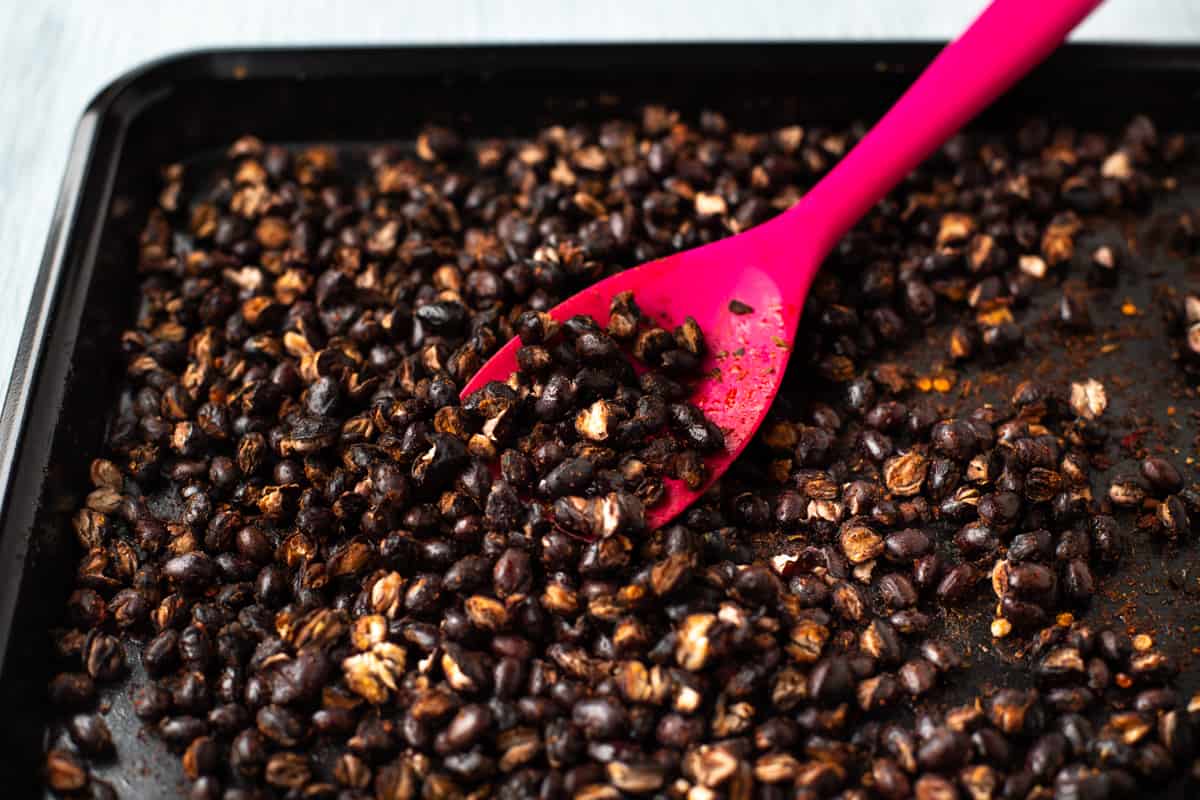
IMPORTANT CONSIDERATIONS
1. Limited Research:
It's crucial to understand that most of the research has been done on black beans themselves, not specifically on black bean tea. The concentration of nutrients and beneficial compounds in the tea is likely to be lower than in the whole beans.
2. Nutrient Extraction:
It's unclear how well the nutrients and antioxidants are extracted into the tea during the steeping process. The brewing method and steeping time can influence this.
3. Fiber Content:
While black beans are high in fiber, the tea is likely to contain less fiber than the whole beans. Don't rely on black bean tea as your primary source of fiber.
INDIVIDUAL RESPONSES
The effects of black bean tea can vary from person to person.
Not a aeplacement for Whole Foods:
Black bean tea should not be considered a replacement for eating whole black beans as part of a balanced diet. You'll get far more nutritional benefits from eating the beans themselves.
Consult a healthcare professional:
If you have any underlying health conditions or are taking medications, it's always a good idea to consult with your doctor before regularly consuming black bean tea or making significant dietary changes.
In summary, black bean tea may offer some of the health benefits associated with black beans, but the effects are likely to be less pronounced than consuming the whole beans. It's a flavorful beverage, but it shouldn't be relied upon as a primary source of nutrients. More research is needed to fully understand the specific health benefits of black bean tea.
HOW TO MADE ROASTED BLACK BEANS TEA
1. Select beans:
Choose clean beans that are not moldy or damaged.
2. Soak beans:
Soak beans in water for about 2 to 4 hours to soften the beans and remove impurities and natural toxins that may exist.
3. Roast beans:
After washing and draining, start roasting beans in a pan over medium heat. Stir constantly to cook the beans evenly, avoiding burning. Roast until the beans are lightly golden and give off a characteristic aroma. This process usually lasts about 15 to 20 minutes, depending on the type of beans.
4. Cook bean water:
After roasting, let the beans cool completely. Then, you can put the beans in a pot of water. Bring to a boil and then reduce the heat, let the water simmer for about 15 to 30 minutes.
5. Your cup of tea:
Once the beans are cooked, you can strain the water. The bean water can be drunk hot or cooled, then stored in the refrigerator for use gradually for about 1 to 2 days.
Black bean tea is sometimes recommended to be drunk before going to bed because it can help warm the body and help you sleep better.
Compiled and written by Crocus Media
Products

Negin Saffron Mashhad
Saffron Negin Salam is grown in the high mountains of the Mashhad region, where the air is fresh. Saffron is watered with dew, due to resistant to the dry wind blowing in the summer, so the surviving plants have the most intense vitality.
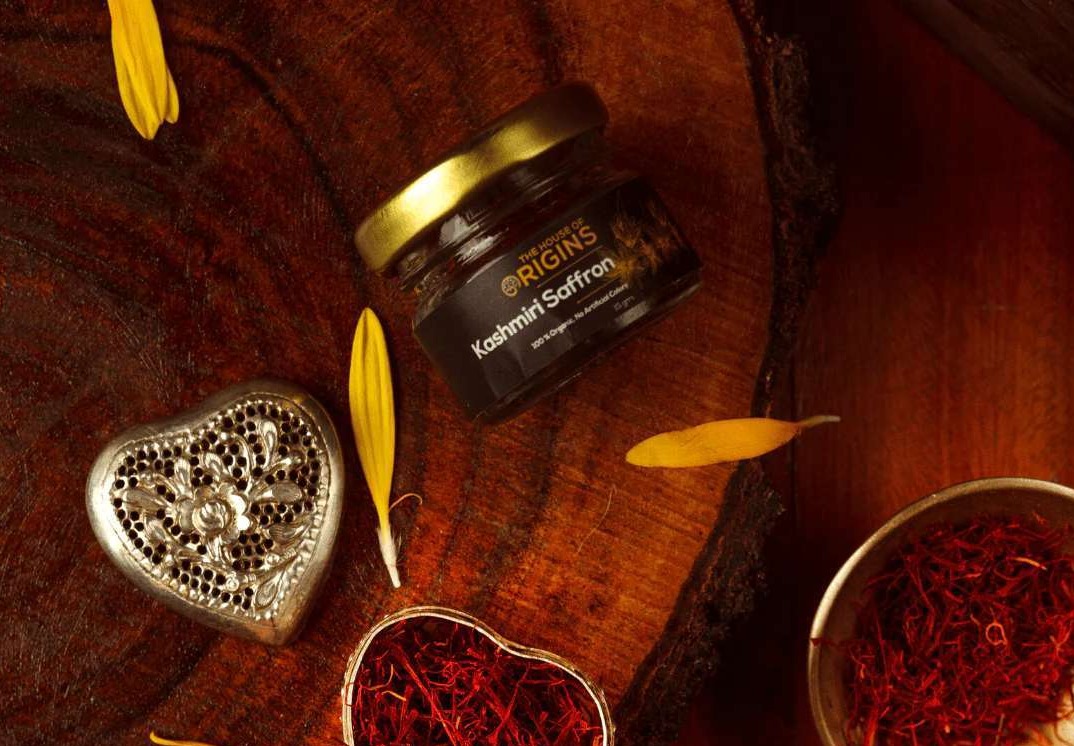
Negin Saffron Kashmiri
Negin Saffron from The House of Origins is legally sourced with high quality. There are a plethora of famous saffron raw material areas, but the Kashmiri pistil from India has a better quality because the climatic and soil conditions are more suitable for them. Each Kashmiri saffron has 3 delicate branches of saffron that are skillfully hand-picked by the local Lethapora farmer community to bring you the original and pure 'red gold'.
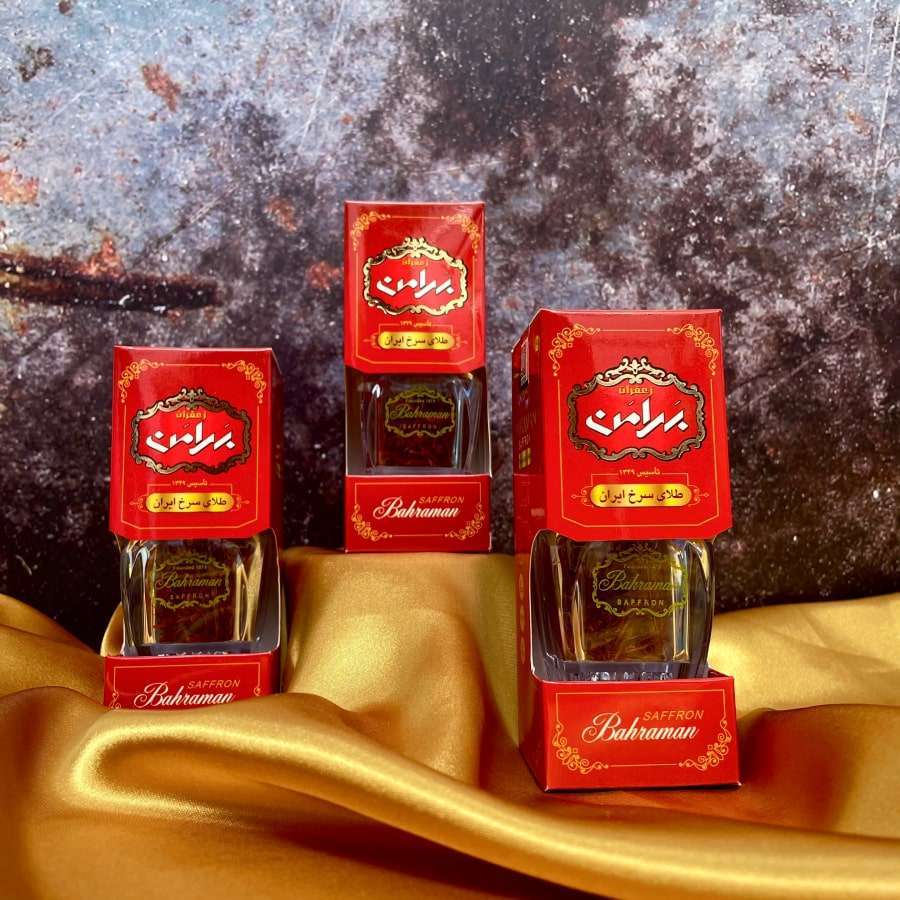
Negin Saffron Iran
Negin Saffron Bahraman is a dried saffron pistil produced by Bahraman Saffron Iran company. Saffron Bahraman is known as one of the most valuable and expensive herbs in the Middle East. Bahraman products are the output of a growing, cultivating and harvesting process that uses a limited amount of fertilizer. Therefore, bahraman saffron still ensures high quality, retains aroma and high nutritional content to ensure safety for users.
